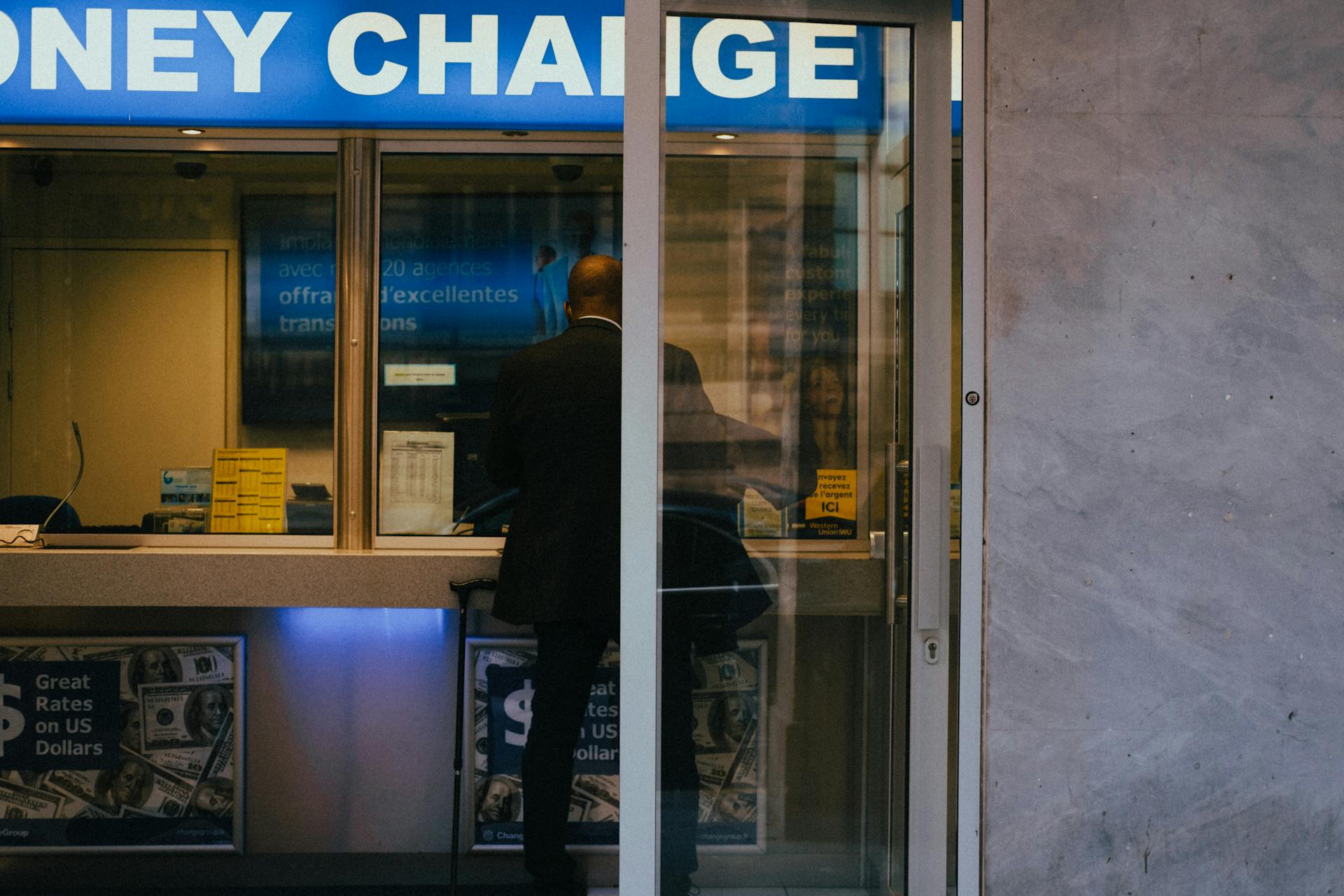
Ninja loans explained: have you ever heard of this type of loan? Ninja loans, or No Income, No Job, and Assets loans, were quite popular in the mortgage industry before the 2008 financial crisis. These types of loans required no proof of income, employment history, or assets to secure a loan. Sounds too good to be true? It was.
Ninja loans worked by allowing borrowers to take out a mortgage without providing any documentation of their ability to pay back the loan. Lenders would give out ninja loans based on credit scores alone, which often led to people borrowing more than they could afford. The lack of verification meant that lenders had no way of independently verifying a borrower's ability to repay the loan. This led to an increase in defaults and foreclosures when borrowers couldn't make their payments.
The 2008 financial crisis brought ninja loans under scrutiny as they were one of the main culprits behind the housing bubble burst. Today, ninja loans are no longer available due to tighter regulations in place. However, it is essential to understand how these types of loans worked and why they contributed so heavily to the financial crisis. Stay tuned for more information on ninja loans and their impact on the mortgage industry.
A fresh viewpoint: A Conventional Mortgage vs Conventional Loan
Discover the Meaning and Instances of a NINJA Loan
NINJA loans, also known as no-doc loan or stated income/stated asset loans, were popular in the early 2000s. Lenders generally require independent verification of a borrower's financial documents, such as verifying pay stubs and tax returns. However, with NINJA loans, borrowers simply told lenders about their employment income and claimed assets.
During the 2008 financial crisis, mortgage lenders issued NINJA loans to borrowers who had no sufficient income or assets. This is because NINJA loans are based on stated income and assets ended up being alternate names for low documentation loans. Mortgage lenders provided mortgages to borrowers without verifying their ability to repay the loan.
The typical requirement for NINJA loans was that borrowers had to state their income without having to provide any proof. As a result, many people who could not afford mortgages secured them through these types of loans. Unfortunately, this led to many defaults on payments during the 2008 financial crisis.
Expand your knowledge: Assumable Mortgages Can Help Buyers Get Sub-4 Mortgage Rates
Discover the Mystery Behind NINJA Loans and How They Work
Ninja loans, also known as liar loans or no-doc loans, are a type of loan offered to borrowers without extensive verification processes. Lenders require borrowers to present evidence of income, assets, and sufficient collateral to ensure that the loans can be paid back. But with ninja loans, lenders completely bypass this verification process.
Unsurprisingly, ninja loans presented a major opportunity for economic foul play in the mid-2000s housing bubble. With aggressive growth and rigged parts of the theft movement taking over ethical parts of the market, ninja loans became more popular. However, after the 2008 financial crisis hit hard, ninja loans were outlawed completely under the Dodd-Frank Wall Street Reform and Consumer Protection Act.
According to American Life Planet Money Forbes, no-doc loans were one of many factors contributing to the collapse of the housing market in 2008. The subsequent crash sent shockwaves around the world and highlighted just how dangerous these types of loans can be in a fragile economy. In short, while ninja loans may have once seemed like an easy way to get ahead financially, they proved to be anything but that in reality.
Exploring Other Options Besides NINJA Loans: A Smarter Move?
NINJA loans used to be a common type of loan for individuals with low credit scores or limited income. However, due to regulations including the repay rule, lenders are required to independently verify income and assets before approving loans. This means that NINJA loans are no longer common and have been replaced by other options.
One option is an FHA loan which has lower credit score requirements and smaller down payments compared to conventional mortgages. Another option is obtaining a mortgage preapproval from a lender which verifies income, credit score, and debt-to-income ratio. This can help individuals confidently shop for homes within their budget.
Additionally, lenders now issue qualified mortgages that meet specific government criteria including provisions for asset verification requirements. These regulations ensure borrowers have the ability to pay back loans and reduce the risk of default. Working with a knowledgeable loan officer can help individuals explore these options and find the best fit for their financial situation.
If this caught your attention, see: Target Credit Union Mortgage Rates
The UK's NINJA Loan Era: A Foreboding Sign from the Past
The UK's NINJA Loan Era, also known as the "No Income, No Job or Assets" loan era, was a time of recklessness in the mortgage industry. In the 1990s, homebuyers were sold mortgages with endowment policies - investments that were supposed to pay off the mortgage at the end of its term. However, mortgages sold with these policies had no guarantee of paying off the loan amount.
The stock market meltdown highlighted just how risky these policies were. Building companies and precipice bonds companies such as Lloyds TSB and Bradford & Bingley touted guaranteed securities for these policies, but when the stock market fell it meant large compensation claims and mis-selling fines. Payment protection insurance was also offered on personal loans with extensive get-out conditions and commission paid to salespeople.
This era serves as a foreboding sign from the past about how easy it is to fall into a trap of taking out loans that are too good to be true. It is important to do your own research and understand what you are signing up for before taking out any mortgage or loan. The consequences can be severe, not only affecting your finances but also your mental health and well-being. It's time we learn from this mistake and make smarter financial decisions for our future.
On a similar theme: Expert Systems for Mortgages
Advantages and Disadvantages of Obtaining Ninja Loans

Quick loan approval is the primary advantage of obtaining ninja loans or no income, no job, and no assets loans. This type of loan is specifically designed for non-traditional income borrowers who are unable to provide regular proof of income. With ninja loans, borrowers can get quick access to funds without having to go through the usual time-consuming process of verifying their income sources.
However, these types of loans have many disadvantages as well. One major disadvantage is that they played a significant role in the 2008 financial crisis that led to the collapse of the housing market. Ninja loans attracted predatory lenders who offered high-interest rates and fees, causing many borrowers to default on their mortgages. As a result, many homeowners lost their properties while others faced financial difficulties.
In conclusion, while ninja loans may seem like an attractive option for those who need quick cash without proof of regular income sources, it's essential to consider the long-term consequences before taking out such a loan. The risks associated with these types of loans can often outweigh the benefits, leading borrowers into deeper financial troubles. It's always best to consult with a financial advisor or do thorough research before deciding on any loan options.
For more insights, see: Can I Use Annuity Income to Qualify for a Mortgage
Can Ninja Loans Really Be Blamed for the Economy's Collapse?

Thomas Herndon, an assistant professor at Loyola Marymount University, claimed that the estimated conservative lower bound of total market losses caused by liars loans was $836 billion. These loans are also known as ninja loans, which stands for "no income, no job or assets." This means that the lending institutions set borrowers up to fail with poor practices, leading to public experience avoidable financial losses caused by wall street. Although ninja loans contributed to the 2008 financial crisis, they were not the sole cause.
The problem with these liars loans and other unethical practices is that they were considered excess and not necessarily illegal actions. This allowed corporate executives to exist in a rigged economy where theft was occurring in specific areas. The theft movement aims to achieve economic justice by holding congress accountable through an independent voting platform where citizens can collaboratively decide on problem areas and start working towards ethical businesses.
By eradicating theft and adhering strictly to legal definitions openly defined terms, we can combat crony capitalism and create an ethical economy where theft is not tolerated. Everyone has the power to fight against rigged economies and powerful rig systems that steal money from everyday citizens. Through collective action and research potential cases, we can put a stop to ill-gotten gains and ensure proper high-quality government services are provided for all citizens.
Frequently Asked Questions
What happens if you default on A NINJA loan?
If you default on a NINJA loan, the lender may take legal action to collect the debt, which could result in wage garnishment, liens on your property, and damage to your credit score.
Are NINJA loans illegal?
No, NINJA loans are not illegal. However, they have become less common since the 2008 financial crisis and are now subject to stricter regulations.
Is predatory lending still common?
Predatory lending still exists, though it is not as common as it was before the 2008 financial crisis. It targets vulnerable individuals and often involves high-interest rates, hidden fees, and other deceptive practices.
How does A NINJA loan work?
A NINJA loan is a type of mortgage where no income, job, or asset verification is required. It was popular before the 2008 financial crisis but has since become rare due to its high default rates.
What are NINJA loans?
NINJA loans are a type of mortgage where the borrower does not need to provide any proof of income, job or assets. They were popular during the housing boom but contributed to the 2008 financial crisis.
Featured Images: pexels.com


